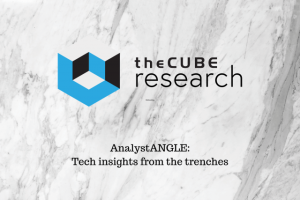Microsoft CEO Satya Nadella kicked off this morning’s Microsoft Big Data event in San Francisco with talk of “ambient intelligence,” the need for a data culture in the enterprise, and something called the data dividend.
“The era of ambient intelligence has begun, and we are delivering a platform that allows companies of any size to create a data culture and ensure insights reach every individual in every organization,” Nadella said. The “data dividend formula,” he continued, is “data plus analytics plus people at speed.”
But talk of the abstract quickly gave way to talk of product strategy and go-to-market tactics. Nadella and his lieutenants – Quentin Clark, Corporate Vice President and Eron Kelly, General Manager of SQL Server Product Marketing – detailed Microsoft’s vision for a Big Data platform that spans infrastructure and storage to analytics and data visualization. Such a cohesive platform is required, Nadella said, to enable enterprises to turn data of all types into actionable insights.
A retrofitting strategy
The three pointed out that Microsoft already has most of the required products to fill out such a Big Data platform, and introduced three new products to fill in some of the gaps. Azure will play an increasingly important role, they said, as will the just-released Analytics Platform System. The latter is a pre-integrated appliance that bundles hardware from partners such as HP with SQL Server and Hadoop – what Microsoft calls “Big Data in a Box.”
More interesting, though, is Microsoft’s strategy for enabling enterprises to consume Big Data. In essence, Microsoft wants to bring Big Data to its enterprise customers without requiring them to learn new skills, write new applications or purchase new hardware. It plans to do this across user populations – IT professionals, application developers and data scientists, and business users.
Nadella’s vision is solid and the company’s strategy to bring Big Data to the enterprise via its existing products makes sense, especially for a vendor with a huge legacy business desperately trying to remain relevant in a cloud and Big Data world. For Big Data to return dividends, to use Nadella’s term, it must be integrated into existing business processes and workflows, and enterprises must leverage the existing skills of workers – both on the administration and analytics front as well as on the line-of-business end-user side – to foster broad adoption.
Nadella’s vision shortsighted?
But such steps are just the beginning, and this is where Nadella’s vision left me wanting more. The real value of Big Data lies not in the old but in the new – disrupting existing markets with new, more efficient, more intelligent data-driven ways of delivering value to customers and creating entirely new lines-of-business and markets with data as the core currency. Big Data is about adopting new styles of computing, embracing new approaches to problem solving and, yes, developing new skills and writing new applications.
To be fair, Nadella did speak about the need to foster a culture of data in the enterprise, but it was couched in language that seemed designed less to inflame the imagination and more to reassure skittish knowledge workers that Big Data won’t make their roles obsolete. And indeed, as best practices go, it is smart to start any new Big Data project by tackling small, manageable objectives with the tools, skills and data already at your disposal. But that’s only the start.
Microsoft has many of the building blocks needed to deliver a cohesive data platform, but enterprises need more than just technology to get the full value of Big Data. They also need inspiration and vision. Microsoft has the technology, but if it wants to differentiate itself from competitors like IBM and SAP, it needs to bring more to the table.

